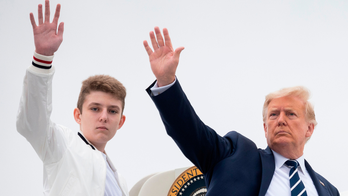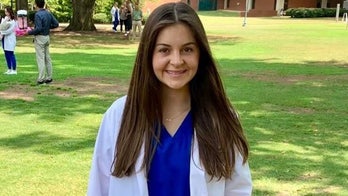Trump blasts 'horrible and politically charged' Supreme Court decisions
The president issues a call for his reelection to protect the Second Amendment after the Supreme Court rejects his bid to end DACA; chief legal correspondent Shannon Bream has an update.
In the wake of some Supreme Court decisions that were disappointing for many conservatives, President Trump announced that he will be releasing an updated version of his list of possible high court nominees before September — reprising a tactic from his 2016 campaign and reminding Republican voters who might be having second thoughts about voting for him amid a number of swirling controversies of his record on judicial appointments.
"I will be releasing a new list of Conservative Supreme Court Justice nominees, which may include some, or many of those already on the list, by September 1, 2020. If given the opportunity, I will only choose from this list, as in the past, a Conservative Supreme Court Justice," Trump tweeted in June. "Based on decisions being rendered now, this list is more important than ever before (Second Amendment, Right to Life, Religious Liberty, etc.) – VOTE 2020!"
TRUMP RIPS SUPREME COURT, CLAIMS 'POLITICAL PROSECUTION' AFTER RULINGS ON FINANCIAL RECORDS
The original version of Trump's list was released in the later stages of the 2016 Republican primary, then expanded ahead of the general election that year and again during 2017. The list was a rallying cry for Republicans who were suspicious of Trump's conservative credentials during the campaign and has produced two Supreme Court justices that on the right are nearly universally considered among the most important accomplishments of Trump's presidency.
"Here is a guy who is about to become our nominee who was doing fundraisers for Chuck Schumer four years ago," Senate Majority Leader Mitch McConnell, R-Ky., said at The Federalist Society's 2019 Kentucky Chapters Conference. "So there were a lot of us saying, 'What are we getting here?' And the list reassured a whole lot of Republicans, beginning with Republican U.S. senators."
He added: "Fast forward a little further and by the fall, the single biggest issue that brought nine out of 10 Republican voters home to Donald Trump, just like nine out of 10 voted for Mitt Romney, was the Supreme Court."
The idea for the Supreme Court list came to be shortly after the death of Justice Antonin Scalia in 2016, according to former White House counsel Don McGahn, who also worked on the president's campaign. Scalia's death happened on the same day as a Republican presidential debate, and Trump in the debate dropped the names of William Pryor and Diane Sykes, two circuit court judges who were still on his most recent list when it came out in 2017.
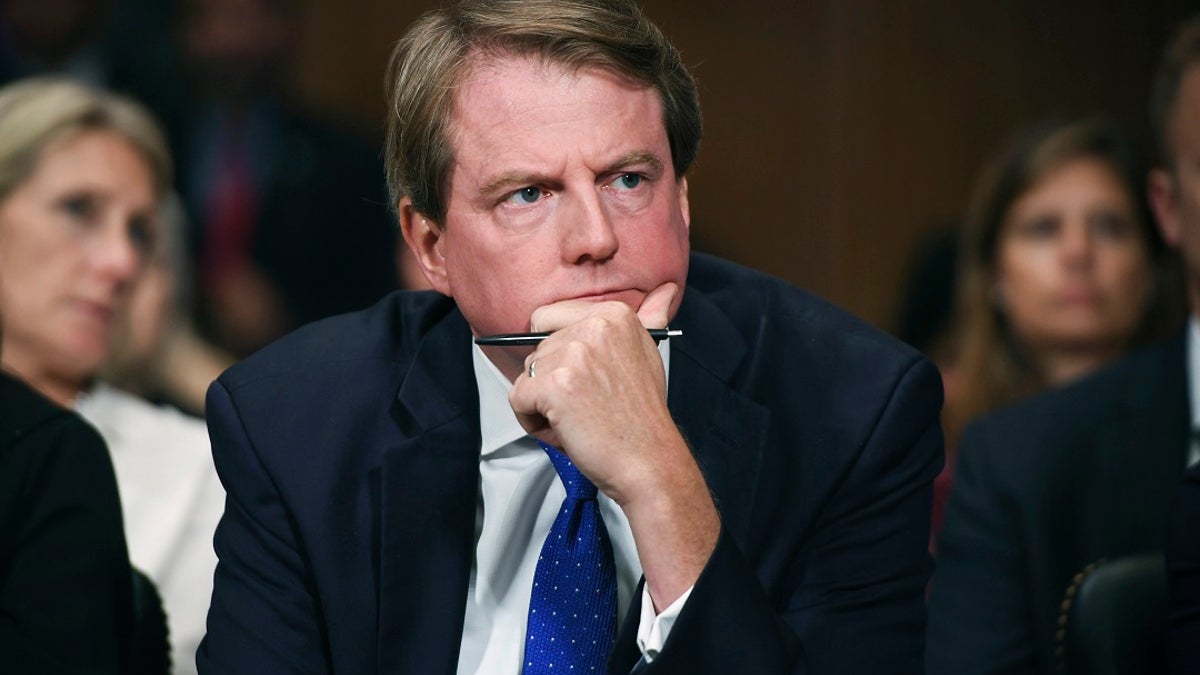
In this Sept. 27, 2018, file photo, then-White House counsel Don McGahn listens as Supreme court nominee Brett Kavanaugh testifies before the Senate Judiciary Committee on Capitol Hill in Washington. McGahn spoke to Fox News about the process that went into Trump's Supreme Court list while he was the counsel for Trump's campaign and the White House counsel. (Saul Loeb/Pool Photo via AP, File)
TRUMP CALLS FOR 'NEW JUSTICES' ON SUPREME COURT, AS CONSERVATIVES RAGE AT ROBERTS
"From the president mentioning names in the debate, that led to a meeting in D.C., it happened to be at my law firm, where he actually said, 'Why don't I put out a list publicly of people who would be the sort of people I would put on the Supreme Court,'" McGahn said at a Federalist Society speaking engagement.
In the initial stages of the list, in 2016, a relatively small group of lawyers – receiving input from the conservative and libertarian lawyers' group the Federalist Society – took on the task of combing through thousands of pages of judicial opinions, speeches and more to come up with a list of sufficiently vetted names to present to Trump.
"My team was at least six, sometimes as many as 10. They were not junior lawyers," McGahn told Fox News in an interview. "They were very serious people themselves, who had clerked on federal appeals courts, on the U.S. Supreme Court, and who had litigated in federal courts, and who knew what they were looking for… So it was quite the operation."
Leonard Leo, the former executive vice president of the Federalist Society and current co-chairman of the group, has played a role in Trump's judicial selection process since the campaign and is again a part of making the president's newest list. He said it's important to go through "every single" piece of written work by a potential list member because "the written word tells us about the candidate’s courage, about their views on the Constitution and the rule of law, and how they will approach their role as a judge."
To McGahn, that level of vetting, especially with some judges who have been on the bench for a decade or more and published hundreds of written opinions, means "a tremendous investment of time" and "a lot of work." But work that McGahn said is necessary because of how "critical" Supreme Court justices will be in shaping "the future of the country" in a time when "the court has waded into an increasingly wide range of issues."
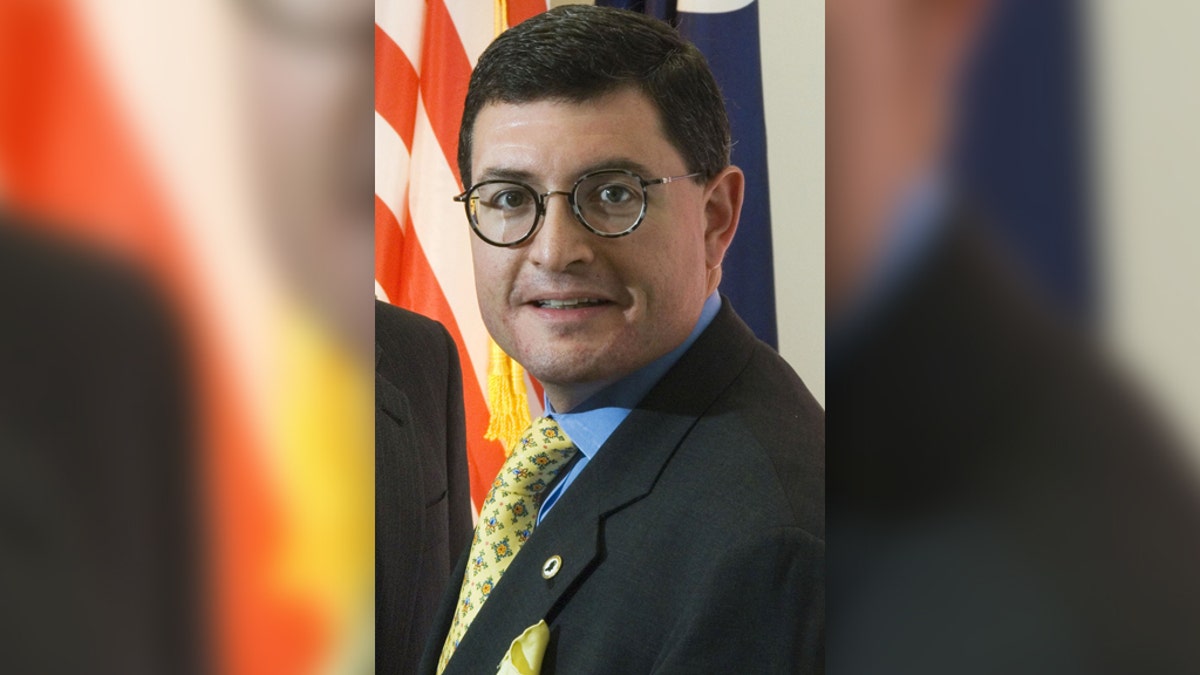
Former Federalist Society executive vice president Leonard A. Leo has long been involved in President Trump's judicial selection process.
ANDREW MCCARTHY: TRUMP'S SUPREME COURT LIST -- WILL 2016 BATTLE PLAN WOR THIS YEAR?
Judicial Crisis Network President Carrie Severino, a former clerk for conservative favorite Justice Clarence Thomas, is more involved in the upcoming list process than McGahn, who left as the White House counsel in late 2018, after overseeing two successful Supreme Court confirmations.
She said to Fox News that the Supreme Court list coming this summer has a bit of a bigger team behind it than the one McGahn worked with while on Trump's lean presidential campaign — but one that still has a high level of expertise.
"We have a large team of extraordinarily talented lawyers when it's a big vetting project like this," she said. "It's not really something you can just delegate to an intern or a person who is new to the intersection of law and public policy, because it really takes an incredibly deep understanding of the Constitution and all of the relevant issues and judicial philosophies to do it right."
Those working with the list wouldn't go into detail naming names of those involved, but the judicial selection process, as it is during any presidency, is generally coordinated by the White House Counsel's office. McGahn's successor is current White House Counsel Pat Cipollone.
On what Trump's listmakers look for during the vetting process, Leo channeled Trump: "The nominees need to be, quote, 'not weak.'"
"And by that, it means they need to be courageous people who are not going to bend to the political or social pressures of the day," he said.
Severino said Trump nominees "have been consciously been vetted for making sure that they have demonstrated courage in their lives."
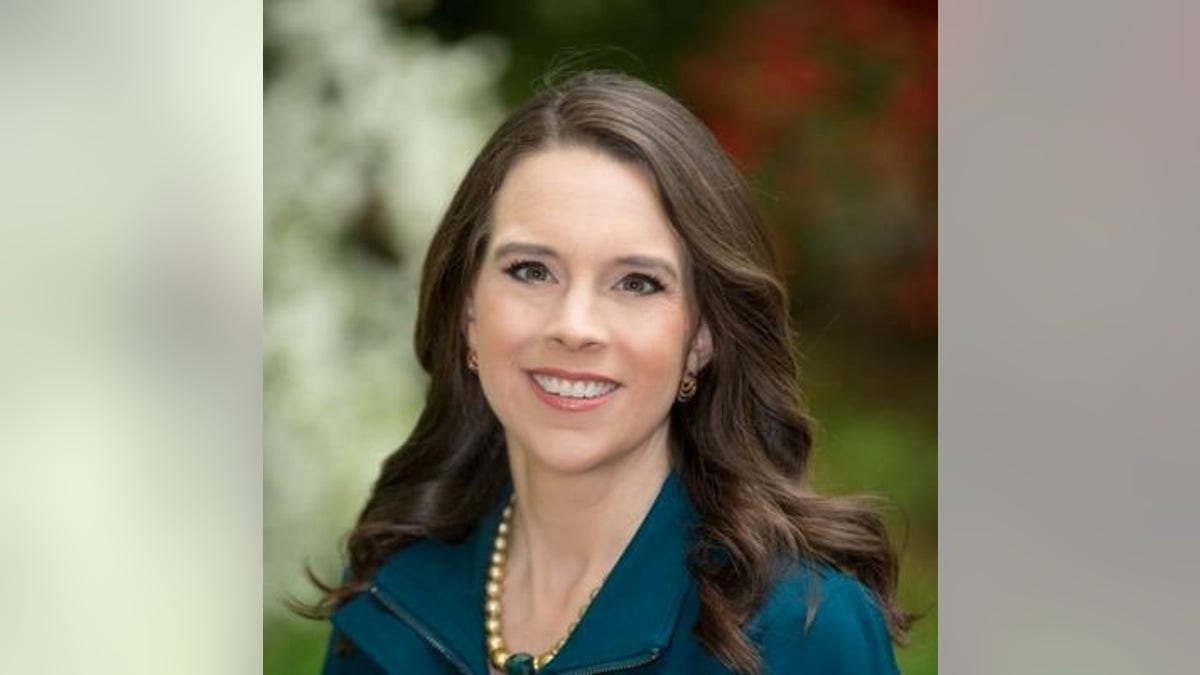
Judicial Crisis Network President Carrie Severino is one of the members of the conservative legal movement who has long been supportive of President Trump's judicial picks.
SUPREME COURT PUNTS, DENIES TRUMP IMMUNITY BUT BLOCKS HOUSE DEMS FROM TAX DOCS
McGahn has in the past described the president's lists as "smash-mouth" and elaborated to Fox News that Trump judges "all have examples where they didn't shy away from engaging in a spirited debate. This is a marked change from the past.”
Indeed, the Trump administration has put a premium on judges having a long history on the bench and a miles-long paper trail full of contentious decisions. This was the case with Kavanaugh, for example. Many on the right who were concerned with ensuring Trump's second Supreme Court appointment got across the finish line had misgivings about the then-D.C. Circuit judge due to the long history he had on the bench, with hundreds of opinions from which Democrats could cherry-pick objectionable tidbits.
Leo said conservatives are learning from mistakes made while appointing people like Chief Justice John Roberts, and that the paper trail is worth the risk.
"The process that led to the nomination of John Roberts is very instructive as we seek to further improve the judicial selection process," he said. "It is important to remember that, at the time Roberts was being considered, very little was known about him, his record was not as robust as what you see now from Trump nominees, and on top of that he had a very small number of opinions."
One example of the contentious opinions the listmakers say they look for in nominees was Gorsuch's "frozen trucker case." A truck driver who was low on gas pulled to the side of an Illinois road in 2009 before abandoning his trailer, fearing he'd freeze to death if he stayed to wait for help. For that he was fired. Gorsuch heard a case challenging the firing on a three-judge panel and the trucker won the case, with Gorsuch in the dissent. Despite the trucker being a sympathetic figure, Gorsuch argued that in a literal reading of the law, there was no protection for the trucker under the rather unique circumstances.
When pushed on the issue during his confirmation hearing, accused of siding with corporate America over the little guy, he told Sen. Dick Durbin, D-Ill., "all I can tell you is my job is to apply the law you write," according to the Washington Post.
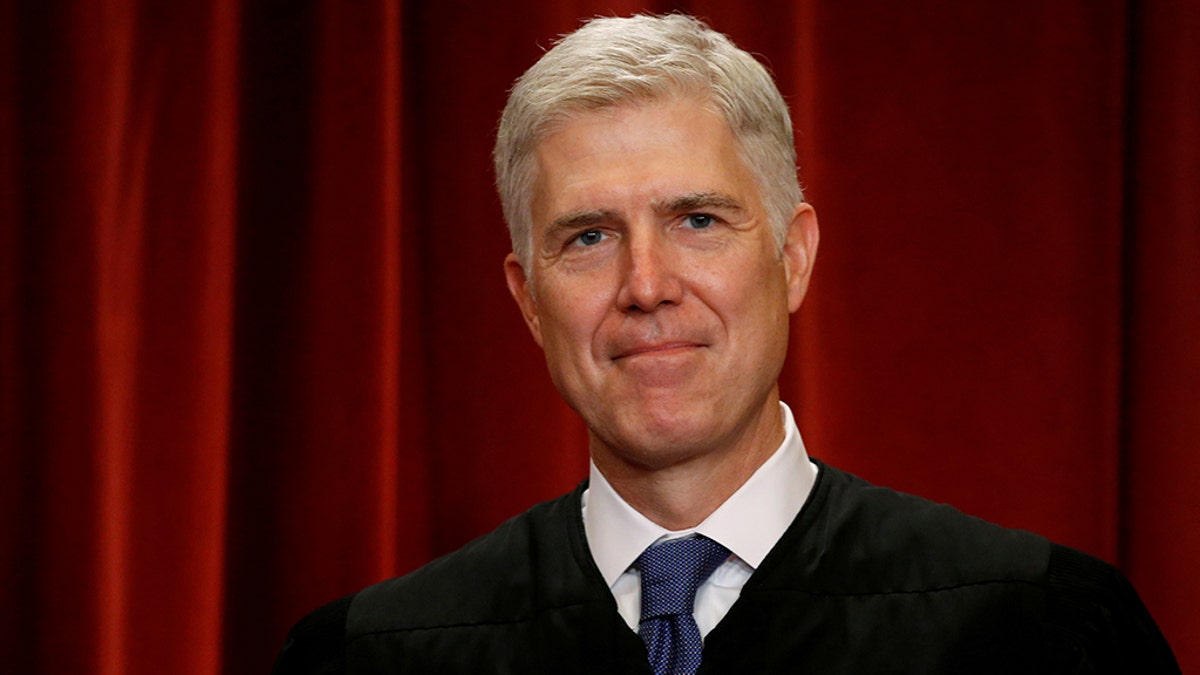
U.S. Supreme Court Justice Neil Gorsuch participates in taking a new "family" photo with his fellow justices at the Supreme Court building in Washington, D.C., U.S., June 1, 2017. REUTERS/Jonathan Ernst
TRUMP DECRIES SUPREME COURT DECISIONS AS 'SHOTGUN BLASTS INTO THE FACE' OF CONSERVATIVES
Conservatives lauded Gorsuch for sticking to his judicial method, though perhaps the very literal reading of the law by Gorsuch in the "frozen trucker case" foreshadowed how the now-justice would rule in a recent case on gay and transgender rights in the workplace, which upset many on the right.
McGahn said Trump and his listmakers look for those with long track records because the president "wanted to see people in a black robe and see what they do as judges because something about being a judge can change someone...Going to CPAC or going on tv and talking a good game is not the same as actually being in the arena and having to make real decisions with real people in front of you."
And when vetting nominees, one person familiar with the process granted anonymity to speak candidly said the president wants people who are not afraid to write "edgy" opinions so he knows "what he is getting" if the judges end up on the Supreme Court. They specifically mentioned Gorsuch's writing on the Chevron deference, a "real barn burner" Kavanaugh wrote about net neutrality and others he wrote about religious liberty
As far as the upcoming list, a person familiar with the process – granted anonymity to share internal discussions – said some names are likely to be removed that were on previous lists.
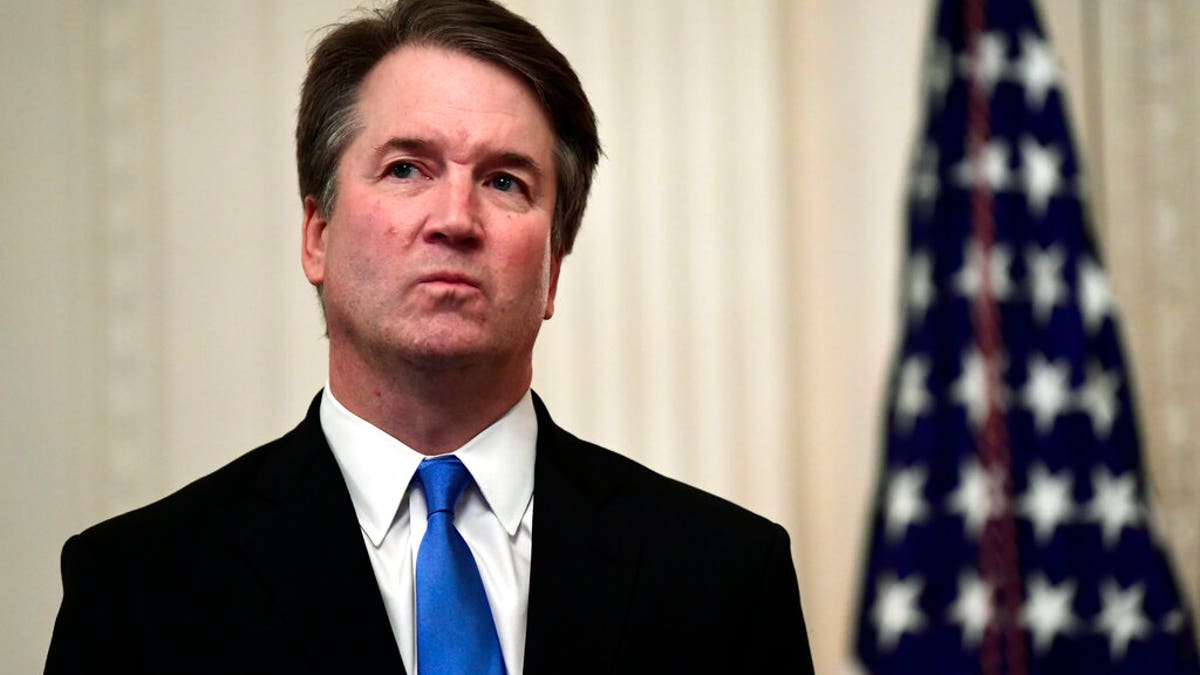
In this Oct. 8, 2018, file photo, Supreme Court Justice Brett Kavanaugh stands before a ceremonial swearing-in in the East Room of the White House in Washington. A "real barn burner" opinion on net neutrality was one of the factors those involved in President Trump's Supreme Court list said helped him make the cut. (AP Photo/Susan Walsh)
LITTLE SISTERS' LEGAL ORDEAL MIGHT NOT BE OVER, SUPREME COURT JUSTICES INDICATE
"For example, some judges on the list are probably considered too old at this point, or in other cases the president has made it clear he will never select them. So there might be some people that are no longer on it," the person said.
As far as those who will be added, McGahn said it might be tough to keep the list short.
"President Trump has a great problem to have," McGahn said. "He has nominated and appointed a slew of excellent jurists to the circuit courts. Thus, he already has a public list: the people he put on the circuit courts."
Trump has put 53 total judges on the circuit courts during his first term, 17 more judges than any other president in history except for Jimmy Carter, who appointed 54. In collaboration with McConnell, Trump has now filled every single circuit vacancy in the country. To paraphrase the majority leader, no vacancy has been left behind.
Severino told Fox News that she expects Trump's Supreme Court list to be a major factor in the upcoming elections.
"Twenty-one percent of voters said that the Supreme Court was their number one issue. That's more than a fifth of the voters. So it was hugely significant," she said.
And beyond electoral politics, Leo said the most important feature of the list is that "it has created a process that is much more transparent and accountable than ever before. And I think that significantly enhances the probability that you will end up with a judge who consistently adheres to the text and original meaning of the constitution."
The judges on Trump's list have for a long time been the subject of criticism from the left, which characterizes them as ideological radicals. They've also slammed the Leo and the Federalist Society for their involvement.
SUPREME COURT RULES RELIGIOUS SCHOOLS SHIELDED FROM TEACHERS' EMPLOYMENT DISCRIMINATION CLAIMS
Among them is Sen. Sheldon Whitehouse, D-R.I., a regular combatant against the Federalist Society and of Trump's judicial selections.
"The EVP of @FedSoc Leonard Leo boasted on TV about the list he gave Trump of potential Supreme Court nominees. And he ushered Kavanaugh onto, and to the top of, the list," Whitehouse said in a tweet thread last year as Kavanaugh attended a Federalist Society dinner in Union Station. "And the big payback is keeping up Justice Roberts’ string of more than 75 5-4 decisions, partisan in makeup, implicating big Republican donor interests, where the big Republican donor interests won every time."
Those associated with the list dismissed Whitehouse's criticism as a "caricature" of what the list actually represents.
"Unlike the Left, we don't want judges who are politicians," Severino told Fox News. "This is about judicial philosophy. And that doesn't always line up with one party's political goals."
Trump's judicial selection process has also come under scrutiny from the right in recent weeks -- especially after Trump appointee Neil Gorsuch authored an opinion in a case called Bostock v. Clayton County, ruling that employers cannot discriminate against transgender and gay individuals under Title VII of the Civil Rights Act of 1964. Gorsuch, much to the chagrin of many conservatives, engaged in a very literal reading of the "because of sex" text in the statute.
SUPREME COURT RULES IN FAVOR OF LITTLE SISTERS OF THE POOR IN OBAMACARE CONTRACEPTION CASE
"Consider an employer with a policy of firing any woman he discovers to be a Yankees fan," Gorsuch wrote. "Carrying out that rule because an employee is a woman and a fan of the Yankees is a firing 'because of sex' if the employer would have tolerated the same allegiance in a male employee."
That led Sen. Josh Hawley, R-Mo., to wonder whether the Trump vetting process was really effective. Politico reported that he said he is "not wild about" Trump putting out another list in the mold of the previous ones that led to Gorsuch. Those close to the Trump listmaking process were clear that they weren't thrilled with the decision in Bostock. Some believed Gorsuch simply made an egregious mistake. Others said they disagreed with Gorsuch's result but believed the decision was still "firmly grounded" in textualism, and occasional decisions like this one are the by-products of nominating a principled judge. But all staunchly defended Gorsuch and the process that brought him to the court.
On the process, Severino said, "anyone who doubts the transformation should consider the majorities of previous decades and ask themselves how many cases originalists were winning back then."
CLICK HERE TO GET THE FOX NEWS APP
Another person involved with the list added: "Do you want the secretive process that brought us David Souter and John Roberts, or do you want the process President Trump has employed, a transparent accountable list that conservatives of all stripes can look at, comment on, and assess?"
McGahn noted that the Bostock case was one of statutory interpretation, meaning that though it may be politically unpopular to change Title VII, Congress can do it.
"For anyone who wants to criticize the Gorsuch opinion—if you’re an incumbent politician, where’s your bill to change the law? Man up, put yourself on the political stage. Regardless, Gorsuch has been a strong protector of religious liberty," he said.
And despite the complaints some conservatives have had about the results reached in the most recent Supreme Court term, there is near-unanimous agreement that it was a successful one for religious conservatives, as noted by conservative radio host Hugh Hewitt in a Washington Post column Friday.
Hewitt cited Espinoza v. Montana Department of Revenue, a case that ruled states offering aid to secular private schools must also make it available to religious schools, and Little Sisters of the Poor v. Pennsylvania, which upheld a Trump administration rule giving a broad exemption to religiously-affiliated groups from the Affordable Care Act (ACA) mandate that employers provide contraception coverage for their employees.
"First things first, and the first rights in the First Amendment are the religion clauses," Hewitt said. "The president delivered justices who have delivered big wins for people of deep religious convictions. If reelected, Trump will continue to appoint such justices and judges."



